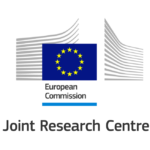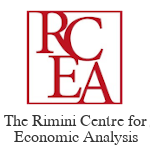International Workshop
The Costs of Non-Europe and the Accomplishment of the European Integration Project: Economic, Legal, and Political Opportunities and Hindrances
CefES International Workshop
Thursday 5 October - Hybrid event: from the University of Milano-Bicocca, “Sala Lauree del Dipartimento di Giurisprudenza”, and online (Zoom)
Workshop Description
Although not fully accomplished, European integration has been a key driver of growth, peace, environmental protection, and social prosperity for EU Member States over the last seventy years. The Covid-19 pandemic first and Russia's invasion of Ukraine successively have recently been an important test for the European project. EU collective action has proven successful in fostering the overall resilience of the EU system by reinforcing Member States' health systems and improvements to the energy and defense sectors. The green transition will further require significant investment efforts in EU Member States consistent with the modernization of the production and consumption patterns necessary to achieve the decarbonization targets set over the next thirty years. Additional challenges are posed by the digital transition, with reference not only to production and labor markets but also concerning market structures, competition, ethics, media freedom, and democracy. These challenges are also not disconnected from the current geopolitical turmoil. Looking ahead, Europe faces different options: 1) the status quo; 2) strategic, collective action; and 3) fragmentation. While 3) implies the dissipation of the integration process and 1) its crystallization at its current state, 2) opens a strategic path to the effective pursuit of the United Nations Sustainable Development Goals (SDGs), making sustainability and upward harmonization of environmental and social conditions the critical drivers of future prosperity. The gap in the prosperity achieved through this virtuous progress in the integration process relative to the status quo scenario yields a measure of the costs of non-Europe. The assessment of these costs is the objective of the workshop's first session, providing insights on the potential benefits of EU-level legislation in several areas, including the rule of law, digital finance, artificial intelligence, workers' protection, legal migration, and gender-based violence. The cost-benefit analysis of Brexit three years later is further informative of the value of pursuing the European integration process for societal prosperity versus fragmentation. This analysis is most important considering the contagion effects that such voter-endorsed withdrawal from the EU has exercised in other core EU Member countries, such as France, Italy, and Spain.
The second session of the workshop starts with reflections on the 1973 Copenhagen Treaty and the first definition of the concept of European identity, as reflected in the same attitudes to life of Member States, based on a determination to build a society that measures up to the needs of the individual, and that defends the principles of representative democracy, of the rule of law, of social justice, and of respect for human rights. Member countries' awareness of having been pushed towards disunity by their history and by selfishly defending misjudged interests should be perpetuated to ensure the survival of the civilization they have in common. The European Parliament, on various occasions, has stressed that Europe's tragic past should serve as a moral and political inspiration to face the challenges of today's world. European remembrance has slowly become strategic for the future of the Union and its integration process. More than ever nowadays, awareness of the consequences of the European totalitarian and authoritarian regimes is vital for the EU and its people. A shared culture of remembrance may promote the values enshrined in Article 2 TEU and prevent the application of Article 7 TEU peculiarly. Against this background, European integration represents a way to overcome deep divisions and hostilities in the continent from its early years through cooperation. But recently, the Russian invasion of Ukraine (escalating the war that started nearly ten years ago in the same country) has shown that WWII' European legacy is still fragile. Eastern and Western EU Member States only theoretically share an identical culture of remembrance. For Western EU Member States, the integration project is a response to the suffering inflicted by the Nazi regime that led to the Shoah. For Eastern EU Member States or Eastern EU candidate States, the defeat of the Nazi regime coincides with the Soviet occupation and the rise of the brutal communist dictatorship. The workshop’s second session assesses whether a different culture of remembrance may threaten a common European identity and the integration project based on EU values and whether it may weaken Europe's resilience to external threats in the near future.
Event Information
Date
Thursday, October 5, 2023
Location
University of Milano-Bicocca, “Sala Lauree del Dipartimento di Giurisprudenza”, Agorà building (Ex-U6), second floor, Piazza dell’Ateneo Nuovo, 1 - 20126 Milano, and online (Zoom).
For any information request, please contact us at: cefes@unimib.it
Thursday, October 5, 2023
9:00 a.m. Welcome: Giovanna Iannantuoni (Rector; University of Milano-Bicocca), Claudio Morana (CefES Director, University of Milano-Bicocca)
9:15 a.m. Session 1: The Costs of Non-Europe - Part 1. Chair: Claudio Morana (CefES Director, University of Milano-Bicocca)
- Lauro Panella (Head of Research, European Parliament). Increasing European Added Value in an Age of Global Challenges. The Cost of Non-Europe.
- Patrizio Tirelli (University of Pavia and CefES). Reform of EMU Fiscal Governance. Why is it So Difficult?
10:45 a.m. Coffee break
11:15 a.m. Session 1: The Costs of Non-Europe - Part 2. Chair: Gino Gancia (University of Milano-Bicocca and CefES)
- Jonathan Portes (King’s College London). Brexit Three Years Later. A Cost-Benefit Assessment.
- Thiemo Fetzer (Warwick University). The Economic Costs of Brexit: A Regional Perspective.
12:45 p.m. Lunch
2:00 p.m. Keynote Session: Stefanie Walter (University of Zurich). The Mass Politics of Disintegration. Chair Silvia Marchesi (University of Milano-Bicocca and CefES)
2:45 p.m. Session 2: Historical Memory and EU Integration - Part 1. Chair: Monica Bonini (University of Milano-Bicocca and CefES)
- Alessia Ottavia Cozzi (University of Udine) Building Europe’s Future on Historical Remembrance and Cultural Heritage: A Difficult Undertaking in Hard Times.
- Guido Crainz (once University of Teramo) and Laura Montanari (University of Udine) Reflecting on European Remembrance: The Integration Process Considering the Twentieth Century’s Controversial Historical Heritage.
3:45 p.m. Coffee Break
4:15 p.m. Session 2: Historical Memory and EU Integration - Part 2. Chair: Monica Bonini (University of Milano-Bicocca and CefES)
- Anna Mastromarino (University of Torino). Historical Identity and Integration: A Constituent Evolution along the Path of Law and Remembrance.
- Jan Sawicki (Expert in Comparative Public Law). Between Eastern and Western European Member States: A Reflection on Historical Tensions and Political Coexistence in Europe.
5:15 p.m. Conclusive remarks
Registration Terms
In-person registration is now closed.
Please contact cefes@unimib.it if you would like to be included in the waiting list to participate to the event.
Collaborations
The workshop is jointly organized by:
- Center for European Studies CefES-DEMS
- Joint Research Centre European Commission
- The Rimini Centre for Economic Analysis RCEA-Europe
Recorded Sessions
Keynote Session: Stefanie Walter (University of Zurich). The Mass Politics of Disintegration
Historical Memory and EU Integration:
- Alessia Ottavia Cozzi (University of Udine) Building Europe’s Future on Historical Remembrance and Cultural Heritage: A Difficult Undertaking in Hard Times.
- Guido Crainz (once University of Teramo) and Laura Montanari (University of Udine) Reflecting on European Remembrance: The Integration Process Considering the Twentieth Century’s Controversial Historical Heritage.
- Anna Mastromarino (University of Torino). Historical Identity and Integration: A Constituent Evolution along the Path of Law and Remembrance.
- Jan Sawicki (Expert in Comparative Public Law). Between Eastern and Western European Member States: A Reflection on Historical Tensions and Political Coexistence in Europe.


